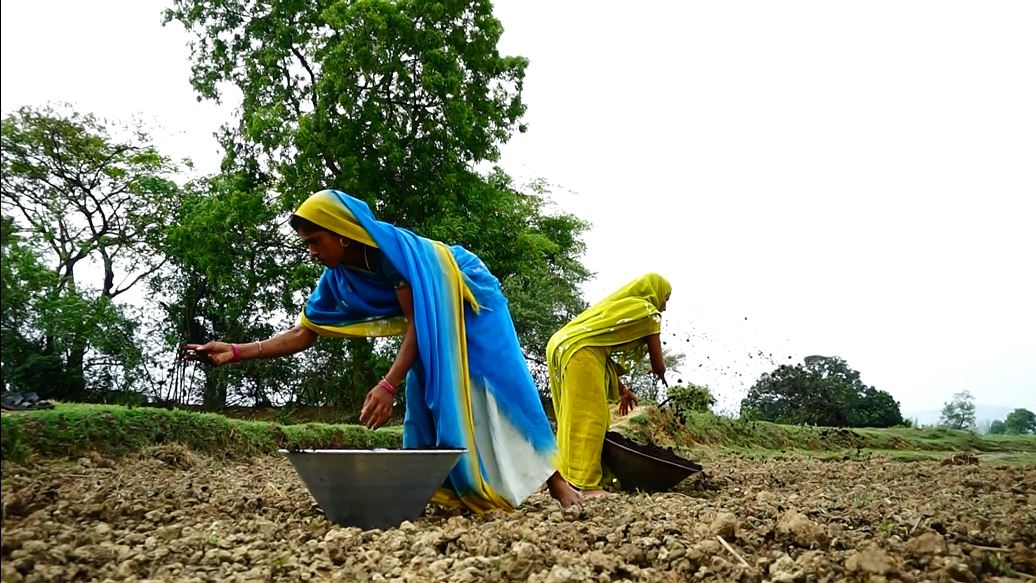70th Mains Examination Article
Topic: The Concept of Sustainable Development in Bihar
GS Paper – 2, Sec.- II

Sustainable development in Bihar signifies economic progress while preserving the environment and ensuring long-term benefits for society. Currently, Bihar faces significant challenges due to the adverse effects of El Niño, yet the state possesses abundant natural resources, a youthful population, and a rich cultural heritage, which provide immense opportunities for transformation. Below is a detailed account of the major areas and initiatives promoting sustainable development in Bihar:
1. Agriculture and Rural Development
- Promotion of Organic Farming: Transitioning towards organic farming by reducing the use of chemical fertilizers and pesticides to enhance soil fertility and improve water quality. This practice is being adopted in all districts along the Ganges.
- Irrigation and Water Management: Expanding irrigation systems with innovative technologies like solar-powered pumps, promoting water conservation methods like rainwater harvesting and drip irrigation. Significant progress has been made in this sector in districts like Rohtas.
- Agro-Entrepreneurship: Empowering farmers through training programs and establishing Farmer Producer Organizations (FPOs) to ensure their access to markets, technology, and financial resources. Crop diversification and promoting agro-based industries also aid in income generation.
2. Renewable Energy
- Solar Energy: Encouraging large-scale solar projects, rooftop solar panel installations, and solar-powered streetlights in rural areas to harness Bihar's solar potential.
- Use of Biogas and Biomass: Promoting biogas for cooking and biomass energy projects to reduce carbon emissions and provide energy in rural households.
3. Education and Skill Development
- Improving Access to Education: Strengthening infrastructure, teacher training, and digital literacy initiatives, particularly in rural areas, to enhance the quality of education at all levels. Thousands of teachers have been recruited through BPSC for this purpose.
- Skill Development Programs: Initiatives like the Kushal Yuva Program focus on enhancing youth employability through vocational and technical skills while supporting local entrepreneurship.
4. Healthcare Infrastructure
- Expanding Access to Healthcare: Increasing the availability of affordable and quality healthcare services, particularly in rural and backward areas.
- Community Health Awareness: Programs like Jeevika (Bihar Rural Livelihood Promotion Society) focus on issues like nutrition, hygiene, and maternal health to create awareness within communities.
5. Infrastructure Development
- Green Infrastructure: Promoting eco-friendly transportation options like electric vehicles, energy-efficient buildings, and sustainable urban planning.
- Improved Road Connectivity: Strengthening rural road infrastructure through initiatives like the Pradhan Mantri Gram Sadak Yojana (PMGSY) to connect remote areas with markets and services.
6. Environmental and Biodiversity Conservation
- Afforestation and Green Cover: Implementing large-scale afforestation projects under the Jal-Jeevan-Hariyali campaign to combat deforestation and climate change.
- Flood Management: Developing sustainable flood management systems, including embankments, early warning systems, and disaster preparedness to address Bihar's recurring flood challenges.
7. Urban Development
- Smart City Initiatives: Cities like Patna are focusing on energy-efficient buildings, advanced waste management systems, and integrating green spaces to promote sustainable urban planning.
- Solid Waste Management: Modern practices for waste collection, segregation, and recycling are being adopted in towns and cities.
8. Women Empowerment and Social Inclusion
- Empowering Women: Programs like Mukhyamantri Nari Shakti Yojana aim to provide education, skill training, entrepreneurship opportunities, and support through Self-Help Groups (SHGs) for women.
- Promoting Inclusion: Policies that address gender inequality and promote social inclusion ensure that marginalized communities actively participate in the development process.
9. Tourism Development
- Ecotourism and Heritage Tourism: Promoting sustainable tourism by leveraging historical sites like Bodh Gaya, Nalanda, and Rajgir. This supports local employment generation and preserves cultural heritage.
- Community-Based Tourism: Encouraging local participation in tourism activities to enhance livelihoods while creating environmentally conscious tourist experiences.
Government Initiatives Supporting Sustainable Development
- Bihar Renewable Energy Development Agency (BREDA): Promoting the state's transition to renewable energy through solar, wind, and bio-energy projects.
- Jeevika (BRLPS): Transforming rural livelihoods through poverty alleviation, financial inclusion, and skill development programs.
- Renewable Energy Policy: This policy aims to promote the development and utilization of renewable energy sources such as solar, wind, and biomass. It offers incentives and support mechanisms to encourage private investment in renewable energy projects.
- Climate Finance Cell: The establishment of this cell within the finance department aims to mobilize climate finance and integrate climate considerations into budgetary processes. This will help direct resources towards climate-resilient and low-carbon development pathways.
- Jal-Jeevan Hariyali Abhiyan: This flagship program focuses on water conservation, afforestation, and soil conservation. It aims to improve water security, enhance biodiversity, and mitigate the impacts of climate change.
- Agricultural Road Map: This initiative promotes sustainable agricultural practices, such as organic farming and water conservation, to enhance food security and reduce environmental impact.
- Clean Fuel Policy: This policy aims to promote the use of cleaner fuels, such as electric vehicles and biofuels, to reduce air pollution and greenhouse gas emissions.
Key Challenges and Opportunities:
- Poverty and Inequality: Bihar faces significant challenges in poverty reduction and addressing social inequalities.
- Environmental Degradation: Environmental issues like deforestation, soil erosion, and water pollution pose significant threats.
- Lack of Infrastructure: Inadequate infrastructure, particularly in rural areas, hinders development and economic growth.
- Human Capital Development: Investing in education and skill development is crucial to enhance human capital and create a skilled workforce.
Conclusion
Achieving sustainable development in Bihar requires collective efforts from the government, private sector, civil society, and local communities. By adopting innovative technologies, participatory governance, and inclusive policies, Bihar can unlock its true potential and ensure a resilient and prosperous future for its people. With the right strategies and implementation, the state can set a benchmark for sustainable development in India.
--------------------------------------
Anisha Shekhar Singh
Chief Editor
Bihar Naman Publication
Patna
